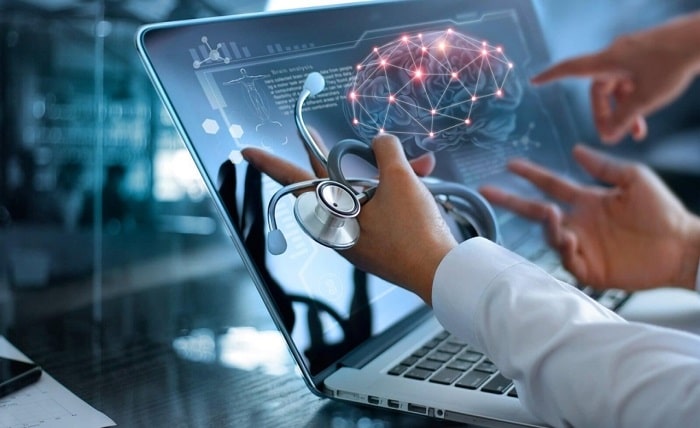The Role of Technology in Modern Healthcare Practices

In recent years, technology has become an integral part of our lives, significantly impacting various sectors, including healthcare. From advanced diagnostic tools to telemedicine, technology has paved the way for improved patient care and streamlined healthcare practices. This blog post aims to explore the profound role of technology in modern healthcare, providing insights into its benefits and potential challenges. Whether you’re a healthcare professional or someone interested in the field, this guide will shed light on the technological advancements shaping healthcare today.
The Evolution of Technology in Healthcare
Technology in healthcare is not a new concept. Over the decades, the industry has witnessed a gradual evolution, from the introduction of simple medical devices to the integration of complex systems and artificial intelligence. The continuous development and implementation of technology have transformed how healthcare is delivered, making it more efficient and accessible.
The shift towards digital healthcare solutions gained momentum with the advent of electronic health records (EHRs) in the early 2000s. EHRs revolutionized record-keeping, enabling healthcare providers to store, manage, and share patient information electronically. This shift paved the way for further advancements, leading to the development of telemedicine, wearable devices, and personalized medicine.
Telemedicine Breaking Barriers in Patient Care
One of the most significant contributions of technology to healthcare is telemedicine. This innovative approach allows patients to consult with healthcare professionals remotely, eliminating geographical barriers and providing access to medical care in underserved areas. Telemedicine has proven invaluable, especially during emergencies and pandemics, where physical contact may be restricted.
Through secure video conferencing platforms, patients can receive timely consultations, prescriptions, and follow-up care from the comfort of their homes. For instance, individuals seeking specialized dental services, such as a general dentist in West Jordan, can leverage telemedicine for preliminary evaluations and advice, minimizing unnecessary visits and improving overall patient experience.
The Rise of Wearable Health Devices
Wearable health devices have become a game-changer in healthcare, empowering individuals to monitor their health and well-being in real time. From fitness trackers to smartwatches, these devices have evolved from simple step counters to sophisticated health monitors capable of tracking vital signs, sleep patterns, and even detecting irregular heart rhythms.
For healthcare professionals, wearables offer valuable insights into patients’ daily activities and health status, enabling personalized treatment plans and early intervention. Patients, too, benefit from the convenience of self-monitoring and the ability to take proactive steps toward better health.
Artificial Intelligence and Machine Learning in Diagnosis
Artificial intelligence (AI) and machine learning have opened new frontiers in medical diagnosis and treatment. By analyzing vast amounts of medical data, AI algorithms can identify patterns and assist healthcare providers in diagnosing complex conditions accurately. This has led to faster diagnoses, reduced errors, and improved patient outcomes.
AI-powered imaging systems, for instance, can assist radiologists in detecting abnormalities in medical images with high precision. Additionally, machine learning models can predict disease progression and recommend tailored treatment plans, leading to more effective and efficient healthcare delivery.
Robotics and Automation in Surgery
Robotic-assisted surgeries have become a hallmark of technological advancement in healthcare. These precision-driven procedures offer numerous benefits, including reduced invasiveness, shorter recovery times, and improved surgical outcomes. Surgeons can perform intricate tasks with greater accuracy and control, enhancing patient safety and satisfaction.
Automation, too, plays a crucial role in streamlining administrative tasks within healthcare facilities. From appointment scheduling to billing, automated systems reduce the burden on healthcare staff, allowing them to focus on patient care and improving overall efficiency.
Challenges in Implementing Technology in Healthcare
While the integration of technology in healthcare offers immense potential, it also comes with its share of challenges. One of the primary concerns is data security and privacy. With the digitization of patient records and the use of interconnected devices, protecting sensitive information from cyber threats is paramount.
Another challenge lies in the initial cost of implementing advanced technologies. Upgrading infrastructure, training staff, and maintaining digital systems require significant investment, posing financial constraints for some healthcare facilities.
The Future of Technology in Healthcare
The future of healthcare undoubtedly lies in continued technological innovation. Emerging technologies, such as blockchain, virtual reality, and genomics, hold the potential to revolutionize healthcare further. Blockchain can enhance data security and interoperability, while virtual reality can be used for medical training and pain management.
Genomics, on the other hand, opens doors to personalized medicine, allowing treatments to be tailored to an individual’s genetic makeup. By understanding genetic variations, healthcare providers can offer targeted therapies and interventions, improving patient outcomes and reducing adverse effects.
Conclusion
Technology has become a driving force in modern healthcare practices, transforming how medical care is delivered and experienced. From telemedicine to AI-powered diagnostics, technology enhances patient access, improves outcomes, and streamlines healthcare operations. However, careful consideration of challenges and ethical implications is crucial to ensure technology’s responsible and effective use in healthcare.
By staying informed about the latest technological advancements and leveraging their potential, healthcare professionals and organizations can continue to provide high-quality care in an increasingly digital world. For readers interested in exploring the intersection of technology and healthcare further, we encourage you to stay updated with the latest trends and innovations that promise to shape the future of healthcare.




